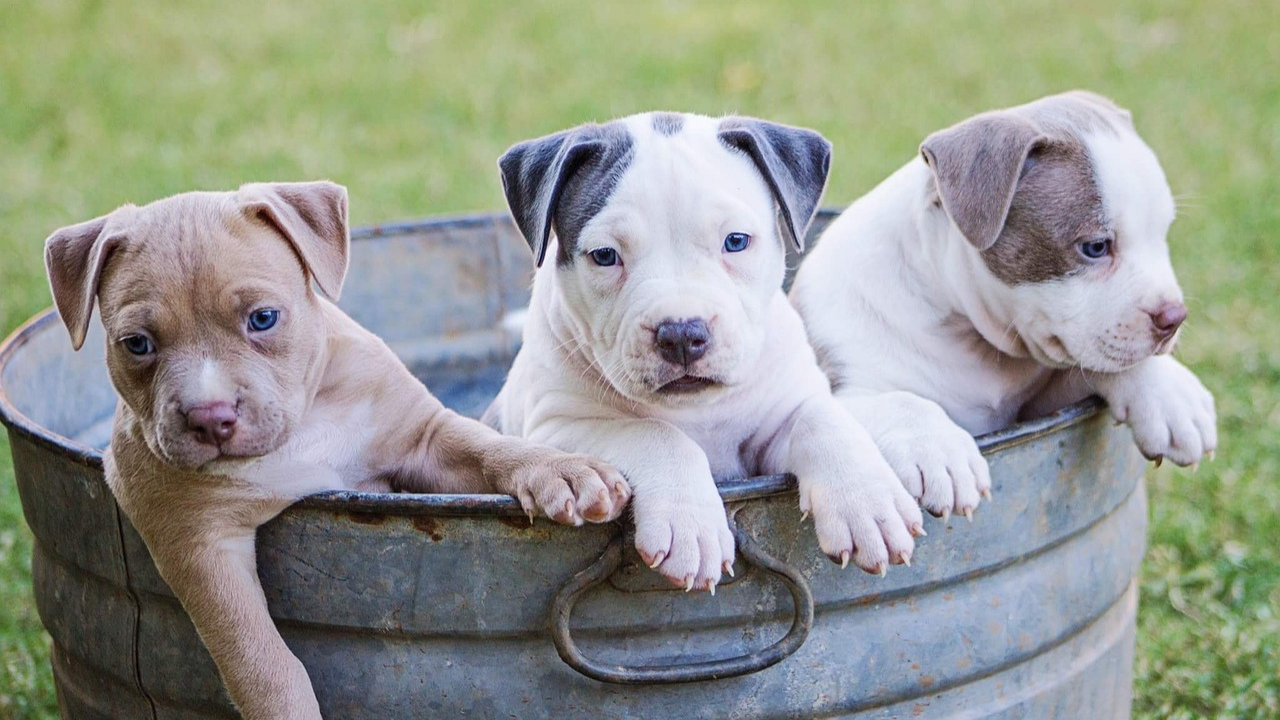Introduction to Pedigree Dogs
So, you’re thinking about getting a dog, or perhaps you’re just curious about the world of pedigree dogs? Either way, let’s dive into this fascinating topic together! Pedigree dogs are a special category of canines that come with their own unique charm and characteristics.
But what exactly are pedigree dogs? In simple terms, a pedigree dog is one whose ancestry is documented, often through a national or international registry. This documentation ensures that the dog comes from a known lineage, with specific traits and characteristics passed down through generations. Think of it as a dog family tree — only much more detailed!
Recognizing Pedigree Dogs
These dogs are typically recognized by various kennel clubs or breed organizations worldwide. Some of the most prominent organizations include:
- The American Kennel Club (AKC)
- The Kennel Club (UK)
- The Federation Cynologique Internationale (FCI)
Each of these organizations has their own standards for recognizing and documenting pedigree breeds, ensuring the dogs meet specific criteria relating to appearance, temperament, and health.
Why Do People Love Pedigree Dogs?
One of the reasons people are drawn to pedigree dogs is the predictability they offer. When you choose a pedigree breed, you have a pretty good idea of what the puppy will grow up to be like in terms of size, appearance, and behavior. This can be a huge comfort for dog owners who want to ensure their new furry friend fits well into their home and lifestyle.
Moreover, pedigree dogs often participate in dog shows and competitions, where they are judged based on how well they match their breed standards. This adds an exciting element for those who enjoy the competitive side of dog ownership.
The Diversity of Pedigree Breeds
One of the most amazing things about pedigree dogs is the sheer variety of breeds available. Whether you’re looking for a small companion to curl up on the couch with or a large, active dog to join you on your hikes, there’s likely a pedigree breed that fits the bill. Each breed has its own distinct personality and set of physical traits, providing endless opportunities to find your perfect match.
From the regal and dignified demeanor of the Afghan Hound to the playful and energetic nature of the Beagle, pedigree dogs offer a wide array of options for potential dog owners.
Preserving Heritage and Culture
Another fascinating aspect of pedigree dogs is the history and culture they carry. Many breeds have origins that date back centuries and have played significant roles in human society — from hunting and herding to providing companionship and protection.
Owning a pedigree dog can feel like owning a piece of history. You’re not just bringing home a pet; you’re also preserving a breed’s heritage and contributing to its continuation.
In conclusion, pedigree dogs offer a wonderful blend of predictability, diversity, and historical significance. As we continue to explore this captivating world, remember that every pedigree dog has its own story and a unique role to play in the tapestry of canine history. So, whether you’re a potential dog owner or just an enthusiastic dog lover, there’s so much to appreciate in the realm of pedigree dogs!
The History and Importance of Pedigree Breeding
Hello, fellow dog lover! Have you ever wondered why pedigree dogs have such fascinating histories, and why pedigree breeding is so significant? Well, grab a cozy seat, and let’s dive into this delightful topic together.
The Origins of Pedigree Breeding
Pedigree breeding began centuries ago when humans realized they could enhance certain traits in dogs through selective breeding. The process is akin to being a bit of a matchmaker, but for dogs! By pairing dogs with desirable attributes, breeders aimed to produce puppies that excelled in specific roles, such as herding, hunting, or simply being the perfect companion.
Imagine this: back in the day, a farmer needed a dog with the energy and smarts to help round up sheep. So, they would select dogs with those qualities, and voilà, the Border Collie was born—a breed almost tailor-made for the job!
The Evolution of Breeds
Over time, pedigree breeding has evolved from practical beginnings to incorporate aesthetic and behavioral qualities that enthusiasts and casual pet owners adore. Nowadays, breeds are recognized for their looks, temperaments, and even their history. Each breed carries its own story, a tale entwined with the human communities that shaped them.
For instance, the noble Great Dane has its roots in ancient Europe, initially bred for boar hunting. Today, it stands as a gentle giant, a testament to the thoughtful evolution of breeding practices over the years.
Why Pedigree Breeding Matters
So, why is pedigree breeding important, you ask? Here are just a few reasons:
- Consistency: Pedigree breeding helps maintain consistency in a dog’s appearance and temperament, giving potential dog owners a clearer understanding of what to expect when welcoming a new furry friend into their lives.
- Preservation: It aids in the preservation of historical dog breeds, ensuring that their unique characteristics and heritages are not lost over time.
- Specialization: Breeding certain traits allows dogs to excel in particular roles, from being working dogs to fulfilling therapy roles and being beloved family pets.
The Role of Pedigree Registries
Organizations like the American Kennel Club (AKC) and the Kennel Club in the UK play a crucial role in maintaining breed standards and providing a framework for responsible pedigree breeding. They document lineages, oversee breeding practices, and help educate the public on the significance of maintaining breed integrity.
These registries work tirelessly to ensure that the traditions and standards of each breed are upheld, balancing the scales between historical heritage and modern-day companionship needs.
In summary, pedigree breeding is not just about fancy dog shows or pageantry. It’s a profound practice that connects us to history, supports the sustainable development of breeds, and enriches our lives with uniquely skilled and charming canine companions. So, the next time you see a pedigree pup, remember—there’s a rich tapestry of stories and careful breeding behind those wagging tails!“`

Popular Pedigree Dog Breeds
When it comes to pedigree dogs, there are so many unique and wonderful breeds to choose from! Each breed has its own distinct characteristics, personality traits, and physical appearances that make them special. Let’s take a closer look at some of the most popular pedigree dog breeds:
1. Labrador Retriever
The Labrador Retriever is one of the most beloved and popular dog breeds in the world. They are known for their friendly and outgoing personalities, intelligence, and loyalty. Labradors are great family pets and are highly trainable, making them perfect for first-time dog owners.
2. German Shepherd
German Shepherds are known for their strength, loyalty, and versatility. They are often used as working dogs in roles such as police work, search and rescue, and as service dogs. German Shepherds are highly intelligent and protective of their families, making them excellent companions.
3. Golden Retriever
Golden Retrievers are famous for their friendly and gentle nature. They are excellent family pets, known for their patience and affection towards children. Golden Retrievers are also highly intelligent and eager to please, making them easy to train.
4. French Bulldog
French Bulldogs are small but big in personality. They are known for their playful and affectionate nature, making them great companions for apartment living. French Bulldogs are low maintenance in terms of exercise, but they do require regular grooming due to their short coat.
5. Poodle
Poodles come in three sizes – standard, miniature, and toy – and are known for their intelligence and hypoallergenic coat. They are highly trainable and excel in activities such as obedience competitions and agility trials. Poodles are also versatile companions, adapting well to various living situations.
6. Bulldog
Bulldogs are known for their unique appearance and lovable temperament. They are docile, friendly, and great with children, making them wonderful family pets. Bulldogs are low-energy dogs that enjoy lounging around the house, but they do require regular cleaning of their facial folds to prevent skin infections.
These are just a few examples of the many pedigree dog breeds out there. Each breed has its own set of characteristics and requirements, so it’s important to do your research and choose a breed that aligns with your lifestyle and preferences.
Remember, owning a pedigree dog is a commitment that requires time, effort, and resources. But the love and companionship you receive in return are immeasurable. So, whether you’re looking for a loyal family pet, a working companion, or a playful friend, there’s a pedigree dog breed out there for everyone!
When you decide to bring a furry friend into your life, choosing a pedigree dog can be a fantastic option. There are so many benefits to owning a pedigree dog that can make them a wonderful addition to your family.
One of the main advantages of having a pedigree dog is their predictability in terms of temperament and behavior. Pedigree dogs are bred for specific traits, which means you can have a good idea of what to expect in terms of their personality, energy levels, and grooming needs. This predictability can be especially important for families with small children or individuals with specific lifestyle requirements.
In addition to predictability, pedigree dogs often have a long history of breeding for certain skills or abilities. For example, Border Collies are known for their intelligence and herding instincts, while Labrador Retrievers are famous for their friendly disposition and loyalty. This history of breeding can make pedigree dogs well-suited for specific tasks or activities, such as agility training, search and rescue work, or therapy dog programs.
Another benefit of owning a pedigree dog is the sense of community that often comes with it. Whether you have a Golden Retriever, a German Shepherd, or a Poodle, there are likely breed-specific clubs, events, and online forums where you can connect with other owners who share your love for that particular breed. This sense of community can be a great resource for sharing tips and advice, finding local training classes or breed-specific events, and simply connecting with other dog lovers who understand the unique quirks of your breed.
Of course, owning a pedigree dog also comes with its own set of responsibilities. It’s important to research the specific needs and requirements of your chosen breed, including grooming, exercise, training, and potential health concerns. Regular veterinary care, proper nutrition, and plenty of exercise and mental stimulation are essential for keeping your pedigree dog happy and healthy.
When considering getting a pedigree dog, it’s also important to choose a reputable breeder who prioritizes the health and well-being of their dogs. Responsible breeders will conduct health screenings, provide proper socialization for their puppies, and be transparent about the lineage and breeding practices of their dogs. Avoid buying from puppy mills or backyard breeders, as these sources often prioritize profit over the health and welfare of their animals.
Overall, the benefits of owning a pedigree dog can be truly rewarding. From their predictability and breed-specific traits to the sense of community and connection with other owners, pedigree dogs can bring a lot of joy and companionship into your life. Just be sure to do your research, choose the right breed for your lifestyle, and provide your new furry friend with the love and care they deserve.
Potential Challenges and Health Concerns
While owning a pedigree dog can be a rewarding experience, it’s important to be aware of the potential challenges and health concerns that can come with it. Just like any other breed of dog, pedigree dogs can be prone to certain health issues due to genetic predispositions.
- Genetic Health Issues: Pedigree dogs are bred for specific traits and characteristics, but this selective breeding can also result in inherited health problems. It’s essential to research the breed you are interested in and be aware of any known genetic health issues that may affect your future pet.
- Cost of Healthcare: Some pedigree breeds may require more specialized healthcare than mixed-breed dogs, which can result in higher veterinary bills. It’s important to budget for routine check-ups, vaccinations, and potential medical expenses that may arise due to genetic health issues.
- Exercise and Training Needs: Different pedigree breeds have varying exercise and training requirements. Some breeds may need more mental stimulation and physical activity to thrive, so it’s crucial to consider your lifestyle and ability to meet these needs before bringing a pedigree dog into your home.
- Grooming Requirements: Certain pedigree breeds have specific grooming needs, such as regular brushing, trimming, or professional grooming sessions. Make sure you are prepared to dedicate time and resources to grooming your dog to keep their coat healthy and free of matts.
- Behavioral Issues: Some pedigree breeds may be predisposed to certain behavioral issues, such as separation anxiety, aggression, or excessive barking. Proper training and socialization from a young age can help mitigate these issues, but it’s important to be aware of potential challenges and seek professional help if needed.
Despite these potential challenges, owning a pedigree dog can be a truly fulfilling experience. By being informed about the breed you choose and taking proactive steps to address any health concerns or behavioral issues, you can provide a loving and happy home for your furry companion.
How to Choose the Right Pedigree Dog for Your Lifestyle
So, you’re thinking about adding a furry friend to your family and you’ve decided that a pedigree dog is the way to go. Great choice! Pedigree dogs come from generations of carefully selected breeding, resulting in dogs with predictable traits and characteristics. But with so many breeds to choose from, how do you know which one is the perfect match for your lifestyle? Here are some tips to help you choose the right pedigree dog:
Evaluate Your Living Space
First and foremost, consider the size of your living space. Do you live in a small apartment or a spacious house with a large backyard? This will play a significant role in determining the size and energy level of the dog that will thrive in your home.
Consider Your Activity Level
Are you a couch potato or an avid runner? Some pedigree breeds require more exercise than others, so it’s important to choose a dog that matches your activity level. If you’re not an active person, a high-energy breed like a Border Collie may not be the best fit for you.
Think About Allergies and Shedding
If you or a family member has allergies, you’ll want to choose a breed that is hypoallergenic and sheds minimally. Breeds like Poodles, Bichon Frises, and Portuguese Water Dogs are great options for allergy sufferers.
Consider Your Family Dynamics
Do you have young children or other pets at home? It’s important to choose a breed that is known for being good with kids and other animals. Breeds like Golden Retrievers, Labrador Retrievers, and Beagles are known for their friendly and sociable nature.
Do Your Research
Once you’ve narrowed down your options based on your lifestyle and preferences, do some research on the breeds you’re interested in. Learn about their temperament, exercise needs, grooming requirements, and any potential health issues that are common to the breed.
Meet the Breed
Before making a final decision, try to spend some time with the breed you’re considering. Visit a local breeder or rescue organization to meet some dogs of that breed and see if their personality and energy level align with what you’re looking for in a pet.
Remember, choosing a pedigree dog is a long-term commitment, so take your time and make sure you’re selecting a breed that fits your lifestyle and preferences. By doing your homework and considering all aspects of your life, you’ll be well on your way to finding the perfect pedigree dog to welcome into your home!
Responsible Breeding and Ethical Considerations
When it comes to choosing a pedigree dog, responsible breeding and ethical considerations should always be at the top of your list. As a future dog owner, it is essential to understand the impact that breeding practices can have on the health and well-being of these beloved animals.
One of the most important aspects of responsible breeding is ensuring that the breeder follows ethical guidelines and standards. This includes conducting health screenings on potential parent dogs to rule out any genetic health issues that could be passed down to the puppies. Additionally, reputable breeders will prioritize the overall welfare of the dogs, providing a safe and clean environment for them to thrive.
It is crucial to do your research and choose a breeder who is transparent about their breeding practices and is willing to answer any questions you may have. Visiting the breeding facility in person can also give you a better idea of how the dogs are cared for and if the environment is suitable for raising healthy puppies.
Another important aspect of responsible breeding is ensuring that the breeding is done with the goal of improving the breed as a whole, rather than simply producing puppies for profit. This means breeders should have a thorough understanding of breed standards and work towards maintaining the integrity of the breed through selective breeding practices.
As a responsible dog owner, it is essential to also consider the option of adopting a dog from a shelter or rescue organization. There are many pedigree dogs in need of loving homes, and adopting can be a rewarding experience that saves a life. By adopting a dog, you are not only providing a second chance for a deserving animal but also taking a stand against irresponsible breeding practices.
Ultimately, responsible breeding and ethical considerations go hand in hand when it comes to choosing a pedigree dog. By supporting reputable breeders who prioritize the health and well-being of their dogs, you are contributing to the betterment of the breed and ensuring a brighter future for these beloved animals.



